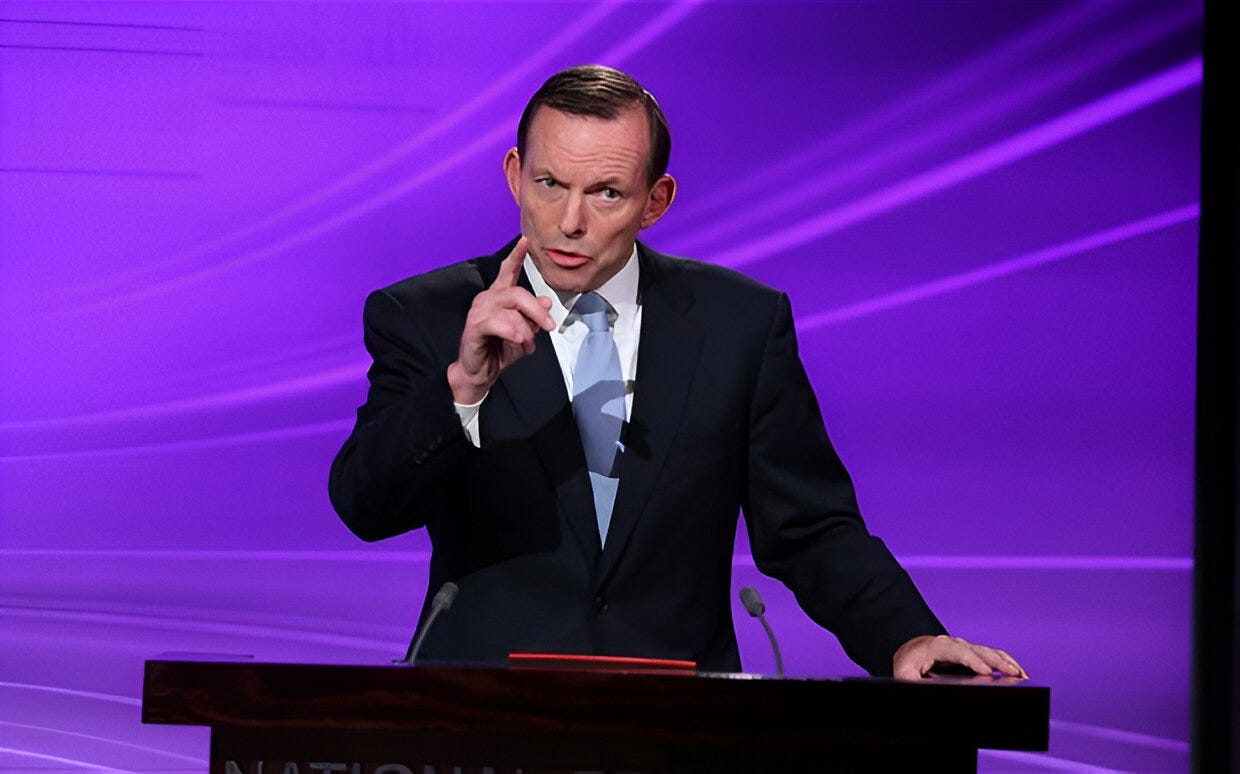Table of Contents
Bob Day and David Leyonhjelm
Bob Day is a former senator for South Australia, former National President of the Housing Industry Association and current Federal Director of the Australian Family Party. David Leyonhjelm was elected to the Senate in 2013 and 2016, resigning in 2019.
Tony Abbott wrote the Australian 6 Jan) that the centre-right coalition government he led into office in 2013 began strongly enough by stopping a wave of illegal immigration by small boats and by repealing a carbon tax and a mining tax. But Senate obstruction, he says, sabotaged his first, economically reforming budget.
The former prime minister went on to say that if the clock could be turned back, he would have insisted that all his frontbenchers provide a detailed blueprint of what needed to change to make a difference in their portfolio area, and explain how their proposed changes reflected the coalition’s ‘smaller government, bigger citizen’ political instincts.

As most will recall, the coalition led by Tony Abbott did indeed go to the 2013 election promising to ‘abolish the carbon tax, abolish the mining tax and stop the boats’.
Upon election, seven centre-right (CR) Senate crossbenchers (we were two of them) voted in support of these three key election pledges, giving the government the numbers it needed (33 + 7) to get its legislation passed. We also voted to approve the Trans-Pacific Partnership, bring back the ABCC, and appoint a wind farm commissioner, all of which the Greens opposed.
As for the former PM’s claim of ‘Senate obstruction’, again most of the crossbench tried hard to help him get his 2014 ‘economically reforming budget’ through.
Needless to say, our suggestions were not taken up.
Take for example, the proposed $7 Medicare co-payment.
We met with then Health Minister Peter Dutton and put to him that real world experience had shown us that charging for something that was previously free required a special approach.
Given there were, at the time, around 100 million GP visits per year, a reduction of even one per cent would result in a reduction in the number of GP visits by a million a year. A big saving.
We put to the minister that, ‘it’s not where you start that counts’, and tried to persuade him to start with two dollars. This would receive minimal push back. And once it was in, future governments could increase it as they saw fit.
Shortly after, we met with Mr Abbott and put to him what we called a 40-40-40 game plan: ‘40 votes (a Senate majority) to fix 40 years of unfinished business and set the nation up for the next 40 years.’
We tried valiantly to convince the prime minister that the best way to get the coalition’s policies through the parliament was to elect more senators like us. That is, if the coalition couldn’t win a majority in its own right, it should at least attempt to achieve a majority with the support of minor party senators.
Stopping a wave of illegal immigration by small boats and by repealing a carbon tax and a mining tax.
Needless to say, our suggestions were not taken up.
In fact, the exact opposite happened. With Turnbull as prime minister, the coalition teamed up with the Greens to change the Senate voting laws and get rid of those very senators who had supported them!
As a result, and as predicted by John Howard, the Greens increased their Senate seats from 10 to 12, Labor went from 25 to 26, centre-left parties increased from one to three, the Coalition lost a seat, and the CR parties dropped from seven seats to three. From 33 + 7 (a CR majority) to 32 + 3 (a CR minority); a loss of five Senate seats!
Perhaps a builder, a vet, a blacksmith, a soldier, a footballer, a sawmill manager and an engineer might not know a lot about politics, but we did bring to the parliament a perspective that career politicians did not.
This article was originally published by Liberty Itch.









